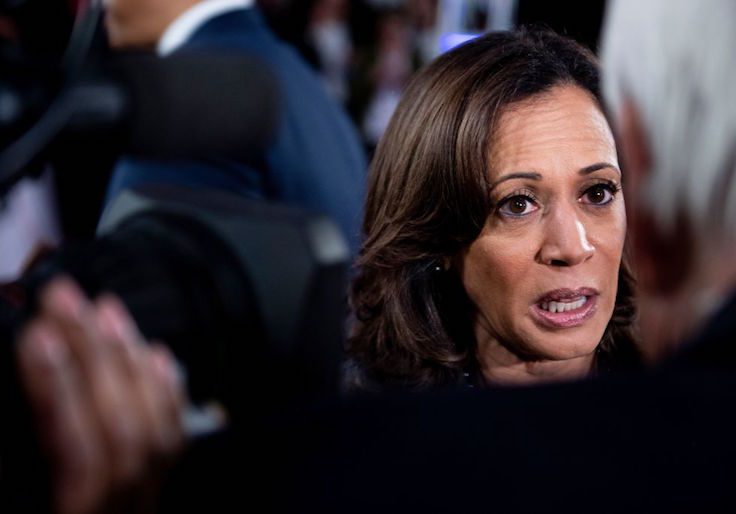The Washington Post fact-checker gave Democratic presidential candidate Kamala Harris Three Pinocchios Tuesday for dubiously claiming that her tax proposal would pay for itself.
In a recent TV ad called "Me, Maya, and Mom," the California senator promised to address the concerns of mothers like herself and her own mother. She promised to provide Americans with "the biggest middle-class tax cut in a generation. Another $500 in your pocket every month, paid for by repealing Donald Trump's tax breaks for the top 1% and the richest corporations in America."
Harris was referring to the Livable Incomes for Families Today Act, a bill she introduced in 2018. The Tax Policy Center noted at the time that her plan would "no doubt, be expensive," but that Harris "suggests paying for it with a fee on some financial institutions and by repealing the parts of the Tax Cuts and Jobs Act..."
But the Post found that Harris's claim that repealing the Trump tax break for just the top 1 percent and corporate tax breaks would pay for her plan simply didn't add up. "Using the Joint Tax Committee score for the tax bill for 2020, we find that the business tax cut reduces revenue by $114 billion, the estate tax cut amounted to $9 billion and the share going to the top 1 percent is about $50 billion. That adds up to almost $175 billion, leaving Harris about $100 billion short," it reported.
Moreover, it notes that despite Harris's claim that she would increases taxes on the "top 1%," her actual bill would raise taxes on those making more than $100,000. That means that under Harris' "tax cut," one half of the households would get a tax cut but "the other half would face an increase."
But even taxing half of U.S. households instead of the promised richest 1 percent, the Post found Harris's plan was still short by $40 billion. The final revenue-raiser in the bill is a fee on any bank worth $50 billion, but there are only 40 or so banks in the country. It's highly unlikely, the Post notes, that Harris could tax each one at a billion dollars each-- many of those banks don't even make that much in a year.
The Post ruled that Harris's ad "pitches [her plan] in a misleading way" by disguising the full extent of who would pay for the bill, and by promising to fill the revenue gaps with a fee "that was simply not credible."
"Harris would have done better not to suggest that she had a way to pay for a generous $500-a-month program," the paper ruled. "But since she did, she earns Three Pinocchios."
